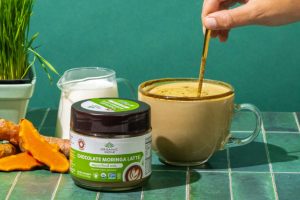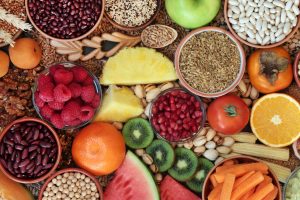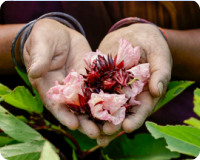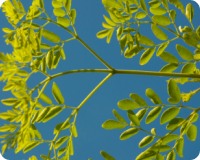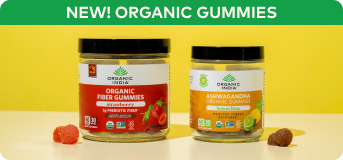

Section

Back
Millions have discovered that physical activity adds to a sense of overall wellness, promotes restful sleep, and keeps the body in shape. Plus, exercise garners numerous unseen benefits, such as an increase in lifespan and better digestion. Physical activity also creates a natural breakdown of cells, wear and tear on the body, and the potential to cause injuries — a fact that has brought modern sports science together with the ancient practice of Ayurveda. There are special adaptogens for workout endurance and recovery that have been used in India for thousands of years to help restore the body from physical and mental exertion, and now they have found a new application in addressing sports-related injuries, muscle- and endurance building, overexercising, and stress.
Of all the Ayurvedic plants, those that are classified ad adaptogens — foods and herbs that tackle stress — hold the most promise for exercise-related issues. Depending on the intensity of your training routine, your body needs more oxygen, nutrients that rebuild damaged muscles, a way to increase lung capacity, and a stronger cardiovascular system. It’s also important to handle healthy inflammatory response and process the breakdown of cells due to physical exertion. To follow are several helpful herbs for anyone involved in working out and sports activities.
Adaptogens for Workout Endurance and Recovery
Check out these top 3 herbal adaptogens for before, during and after your workout.
Ashwagandha, the Rejuvenator
Ashwagandha, sometimes referred to as “the rejuvenator,” is described in ancient texts as being analogous to what we might call a superfood. The Ayurvedic herb offers so many benefits, ranging from stress management to blood sugar balance. Nutrition science researcher Bakhtiar Choudhary, Hyderabad Spine Clinic, Andhra Pradesh, India, reported that Ashwagandha significantly increases oxygen supplies throughout the body. This not only helps oxygenate the muscles, heart, and lungs, but it also aids in recovery. And, for regular gym-goers, Ashwagandha has the potential to not only help improve muscular strength, but also size.
Particularly important for fitness activities is a relatively new concept called cardiorespiratory endurance. This is the level at which your heart, lungs, and muscles work together when exercising for an extended period of time. Ashwagandha has been shown to increase VO2, which is a scientific indicator of how well your body is producing energy to handle your exercise demands. Sports medicine researchers at University of California, Davis, reported that aerobic fitness — exercises that use oxygen to adequately meet energy demands — requires your body to deliver enough oxygen to the muscles for them to engage in activity.
Tulsi, Queen of Ayurvedic Herbs
Another helpful plant for physical exertion and recovery is Tulsi (Holy Basil), regarded as queen of Ayurvedic herbs, whose name is derived from the Hindi word for “the incomparable one.” Tulsi protects the heart and lungs, both of which are essential for endurance and oxygenation during and after exercise. Tulsi is a good source of potassium, and thus supports muscle cell, cardiovascular, and respiratory function. Its ability to bring the body into balance, or homeostasis, is especially noteworthy for athletes and exercise enthusiasts, because a natural consequence of physical stress constitutes some degree of physiological and metabolic damage. Marc Cohen, School of Health Sciences, RMIT University, Victoria, Australia, noted that when stressors are too great for the body to handle, they damage the body’s biochemistry, organ functions, and general health. Adaptogenic herbs, such as Tulsi, can protect against this damage.
Ginger and Turmeric, Recovery Roots
Two more herbs to consider for sports and exercise are turmeric and ginger. Often considered spices or foods, these staples of the Indian pantry address minor pain and inflammation, which commonly result from most athletic activities. While these two symptoms are inevitable for anyone who exercises on a regular basis, they often restrict range of motion and hamper optimum performance, causing a catch-22: A lack of exercise can cause temporary inflammation, but it’s also true that exercise may lead to minor pain and workout-induced inflammation, which keeps you from exercising.
Dietitian Rachael Link wrote that the powerful properties of ginger and turmeric to support a healthy inflammatory response are evidenced in studies showing that one to three grams of ginger a day for 6 to 12 weeks decreased levels of C-reactive protein. The takeaway here is that while pain and inflammation are your body’s way of saying, “Slow down!” or “No more for now!” both ginger and turmeric may pave the way for quicker recovery.
Mind Really Matters
One of the leading reasons people engage in sports and exercise is to help lower stress levels. US News journalist Elaine Howley explains that regular exercise — especially aerobic exercise — elevates your heart rate, which in turn releases endorphins — feel-good brain chemicals that make you more resilient. Resiliency refers to coping with stressful situations in a healthy manner.
Herbs such as Brahmi (Gotu Kola), Ashwagandha, and Bacopa may be of some benefit when striving to manage stress levels and the mental aspect of your game. Brahmi and Bacopa enhance memory and protect the nervous system, in general. These herbs also reduce stress and anxiety levels — both of which are well-known emotional factors in engaging in competitive sports.
A Return to Nature
The Center for Disease Control (CDC), reports that physical activity is one of the best things you can do to improve health. Moving your whole body on a consistent basis is vital for healthy aging, relieving mental and physical stress, losing weight, gaining muscle, toning up,
and feeling better about yourself. Ayurvedic herbs make the perfect exercise companion because of their role in promoting good health, supporting healthy inflammatory and pain response, and ability to help you deal with stress. Ayurvedic herbs have been used and studied for millennia, but now, with the aid of modern science, they are understood to support respiration, circulation, muscular function, joint health, and mental clarity.
Adaptogen curious? Check out these Top 11 Adaptogens for Energy and Focus, too!
